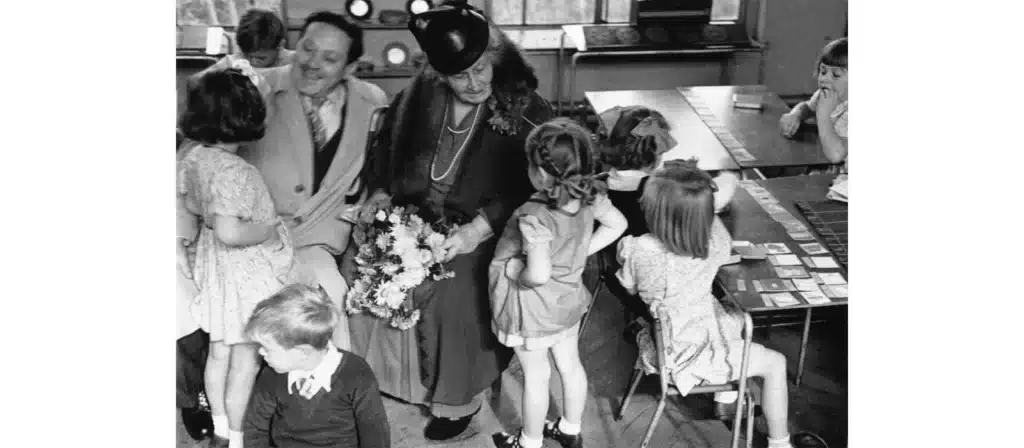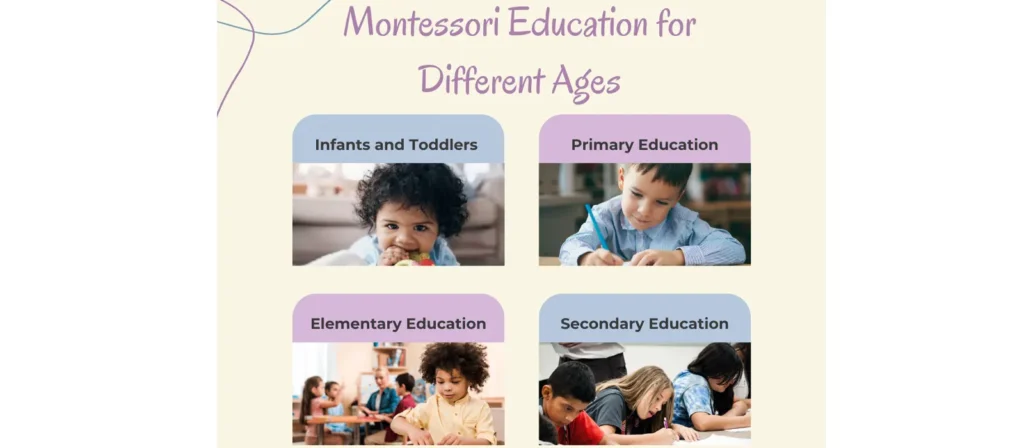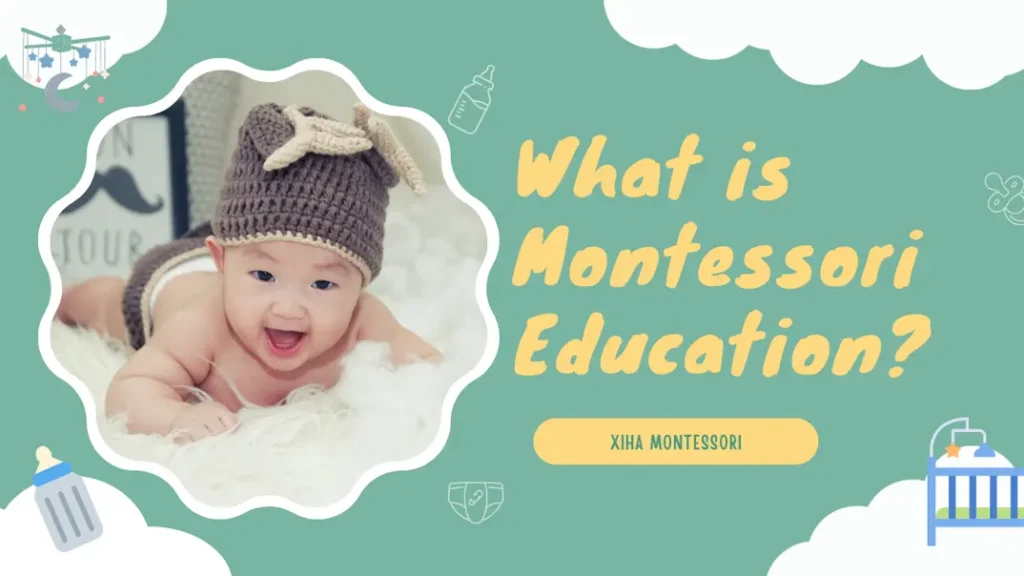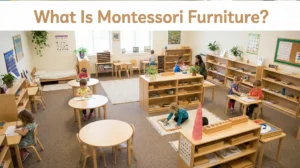Parents and educators often struggle to find the best learning method for young children. The conventional education system sometimes feels rigid, hindering a child’s curiosity and creativity. That’s where Montessori education comes into play. But what exactly is Montessori education, and why is it so unique?
Montessori education is an educational philosophy and approach that fosters independence, creativity, and lifelong learning through child-led activities in a carefully prepared environment.
As more and more parents and educators seek to provide a more holistic, child-centered approach to learning, Montessori education is often considered the method of choice. But Montessori education is much more than that. Let’s take an in-depth look at Montessori education, learn about its global influence, and discover why it is favored by many schools worldwide.
Introduction to Montessori Education
Montessori Education is a child-centered educational approach that emphasizes hands-on learning, self-directed activity, and collaborative play. Developed by Dr. Maria Montessori in the early 20th century, this method encourages children to explore their natural curiosity and develop independence. Montessori classrooms provide a structured yet flexible environment where students engage with specially designed materials to enhance their cognitive, social, and emotional growth.
The Montessori education emphasizes a prepared environment where children have access to materials designed to foster self-directed learning. Teachers act as guides rather than traditional instructors. A central component of Montessori education is the belief that education should develop the whole child’s academic abilities and emotional and social skills.
The Montessori philosophy is built on the belief that children learn best when they are given the freedom to explore their interests at their own pace. This approach contrasts with traditional education systems that rely on teacher-led instruction and standardized assessments.

History of Montessori Education
The history of Montessori education traces back to 1907 when Dr. Montessori opened her first “Casa dei Bambini” (Children’s House) in Rome. She observed that children learn best when allowed to explore their environment freely. This discovery led to the creation of the Montessori education system, which is now used worldwide in thousands of schools, from Montessori preschool education to high school programs.
Over the years, the Montessori method has evolved and adapted, but its core principles remain the same: child-centered learning, individualized pacing, and hands-on experience. The Montessori education curriculum integrates academic subjects with practical life skills, ensuring children develop holistically. Today, Montessori schools operate in over 110 countries, and the Montessori educational center is a familiar concept for many parents and educators seeking alternatives to traditional education.

Who is Maria Montessori?
Maria Montessori (1870–1952) was an Italian physician and educator who revolutionized early childhood education. She was the first woman in Italy to earn a medical degree and initially worked with children with special needs. Through her observations, she discovered that children learn best when they are given the freedom to explore and make choices independently.
Her groundbreaking work led to the creation of the Montessori Method, which is now practiced in thousands of schools worldwide. Montessori believed that every child possesses an innate ability to learn and that education should nurture, rather than restrict, this natural development.
She once said:
“The greatest sign of success for a teacher… is to be able to say, ‘The children are now working as if I did not exist.’”
This philosophy highlights the role of the teacher as a guide rather than a traditional instructor, allowing children to take charge of their own learning journey.

Key Elements of Montessori Education
Montessori’s educational philosophy revolves around several essential elements that make this approach distinctive. These include:
- Child-Centered Learning: Rather than following a rigid curriculum, Montessori classrooms adapt to each child’s learning pace. Teachers observe and guide students based on their individual progress and interests.
- Hands-On Learning: Instead of rote memorization, Montessori students engage in active learning by touching, moving, and interacting with objects to understand concepts. This practical approach enhances comprehension and retention.
- Mixed-Age Classrooms: Montessori classrooms include children of different ages (e.g., 3-6 years, 6-9 years), allowing younger students to learn from older peers while older students reinforce their knowledge by teaching younger ones.
- Use of Montessori Materials: Montessori classrooms feature specialized learning materials designed to engage children in hands-on experiences. These materials, such as the Pink Tower, Moveable Alphabet, and Golden Beads, help children grasp abstract concepts through physical interaction.
- Uninterrupted Working Time: A key principle of Montessori education is allowing children to work without unnecessary interruptions. Montessori classrooms provide long, uninterrupted work periods (typically 2–3 hours), enabling deep concentration and self-motivated learning.
- Limited Freedom: While Montessori students have the freedom to choose their activities, this freedom exists within carefully designed limits. Teachers set clear boundaries to ensure that children remain engaged in productive learning rather than random play.
- Trained Montessori Teachers: Montessori educators are specially trained to observe students and facilitate their learning without directly instructing them. This allows children to develop independence, a benefit of Montessori education. The teachers are instrumental in maintaining the balance between guidance and autonomy, a significant part of Montessori education at home and in schools.
Pros and Cons of Montessori Education
As with any educational approach, Montessori education has pros and cons. It’s important to weigh both sides to determine if this is the right method for your child.

Pros of Montessori Education:
- Fosters Independence: From an early age, children learn self-discipline, problem-solving, and responsibility, which prepares them for real-world challenges.
- Encourages Creativity: Montessori students can explore their interests, which leads to enhanced creativity. They are not constrained by rigid lesson plans, allowing natural intellectual curiosity to flourish.
- Individualized Learning: One of the greatest benefits of Montessori education is that children learn at their own pace. This method meets each child’s needs, allowing Montessori special education programs to thrive alongside mainstream classrooms.
- Enhance Social Interaction: Mixed-age classrooms create a natural sense of community, where children learn from one another, practice leadership, and develop strong social skills.
- Inclusive of Special Needs: Montessori education is adaptable and works well for children with different learning styles and special needs, including ADHD and autism.
- Reinforce Basic Values: Respect, patience, and cooperation are core values in Montessori classrooms, shaping well-rounded, empathetic individuals.
- Comprehensive Education: Montessori education covers academics, social-emotional learning, practical life skills, and cultural awareness, providing a holistic foundation for success.
Cons of Montessori Education:
- Higher Cost of Montessori Education: Montessori schools can be expensive due to the cost of specialized Montessori education supplies, Montessori educational materials, and teacher training. However, some public schools and scholarship programs are available to offset these costs.
- Less Emphasis on Testing: Montessori schools typically downplay standardized testing, which might concern parents who are used to measuring academic performance through tests. This is a frequent point of criticism in Montessori education.
- Transition Challenges: Some students may find adjusting to traditional school environments difficult after being in a Montessori program, especially if they are accustomed to self-directed learning.
- Limited Availability: There may be fewer Montessori schools in some areas, limiting accessibility for some families. This is particularly true in rural or underdeveloped regions.
- Parental Involvement: Montessori often requires active parental engagement, which may not be feasible for all families.
- Inconsistent Implementation: Not all Montessori schools follow the authentic Montessori method, leading to variations in quality.
Montessori Education for Different Ages
Montessori education supports a child’s development at every stage of life. The curriculum is tailored to fit the specific developmental needs of various age groups, making the Montessori education age group structure unique:

1. Infants (Birth to 3 Years)
Montessori education starts from infancy, focusing on sensory exploration and motor skills. Babies and toddlers are given freedom of movement, opportunities to develop coordination, and hands-on materials to stimulate their natural curiosity. Parents and caregivers play a crucial role in creating a safe and structured learning environment.
- Developing motor skills through practical life activities
- Sensory exploration with materials that stimulate touch, sight, and sound
- Encouraging independence by allowing infants to feed and dress themselves
2. Preschoolers (3 to 6 Years)
During this period, children engage with Montessori educational toys and materials that help them explore math, language, and the arts. This is also when Montessori preschool education begins to teach the child independence and self-discipline.
- Practical life skills (buttoning, pouring, cleaning)
- Introduction to language and math using hands-on materials
- Social skills development through peer collaboration
3. Elementary School (6 to 12 Years)
At this stage, children begin to focus on critical thinking, problem-solving, and abstract reasoning. The curriculum includes science, geography, history, and advanced mathematics, with a strong emphasis on discovery-based learning. Students often work on group projects and engage in real-world applications of their knowledge.
- Exploration-based learning in subjects like science, history, and geography
- Project-based education to encourage creativity and independence
- Teamwork and peer mentoring in mixed-age classrooms
4. Secondary School (12 to 18 Years)
Montessori education continues into adolescence, emphasizing practical experiences, self-directed learning, and social responsibility. Students engage in entrepreneurial projects, internships, and community service, preparing them for adulthood with skills in leadership, collaboration, and independent decision-making.
- Entrepreneurial projects and real-world problem-solving
- Internships and experiential learning
- Critical thinking and self-directed study
5 Principles of the Montessori Method
Montessori method is guided by five fundamental principles.
- Respect for Children: Children are treated as individuals with unique needs and abilities, fostering confidence and self-respect.
- Absorbent Thinking: Montessori believed that children have an “absorbent mind”, meaning they naturally learn from their environment, especially in the early years.
- Sensitive Periods: There are critical periods when children are more receptive to learning specific skills (e.g., language, movement, order). Montessori educators take advantage of these windows.
- Prepared Environment: Montessori classrooms are designed to encourage independence, curiosity, and exploration, with organized materials and child-friendly layouts.
- Self-Education: Montessori promotes auto-education, where children learn naturally through discovery, observation, and hands-on experiences.

How Are Montessori Teachers Different?
Montessori teachers play a significantly different role compared to traditional teachers. Rather than acting as authoritative figures who dictate lessons, they serve as guides who observe and support children’s individual learning journeys.
- Facilitators, not lecturers: They create an environment that fosters curiosity rather than directly teaching concepts.
- Trained in child psychology: Montessori educators receive extensive training in child development, psychology, and Montessori materials, equipping them to support self-directed learning effectively.
- Encouragers of independence: They step back and allow children to solve problems on their own before offering help.
- They Create a Prepared Environment: A Montessori classroom is carefully designed to encourage independent learning. Teachers arrange materials in an accessible way so students can choose activities that align with their developmental stage.

Montessori Curriculum: Subjects and Areas of Learning
The Montessori curriculum is broad and comprehensive, covering multiple areas of learning through hands-on activities and real-world applications.
- Practical Life Skills
Students learn essential life skills such as cooking, cleaning, sewing, and time management, helping them develop independence and responsibility. - Sensorial Learning
Activities focus on refining the senses, using materials that encourage exploration of textures, colors, sounds, and spatial relationships. - Language Development
Phonics-based learning helps children develop reading and writing skills at their own pace. Storytelling and hands-on activities enhance vocabulary and comprehension. - Mathematics
Montessori math materials, such as Golden Beads and Number Rods, allow students to explore numerical concepts in a visual and interactive way. - Science and Nature
Children engage in hands-on experiments and outdoor exploration, fostering curiosity about the natural world. Topics include botany, zoology, physics, and chemistry. - Cultural Studies
Montessori students study geography, history, music, and world cultures to develop a global perspective and appreciation for diversity.
What is the Difference Between Montessori Schools and Traditional Schools?
| Feature | Montessori School | Traditional School |
|---|---|---|
| Learning Approach | Self-directed, hands-on | Teacher-led, structured |
| Classroom Setup | Mixed-age groups | Same-age classrooms |
| Role of Teacher | Guide and facilitator | Instructor and authority |
| Learning Pace | Individualized | Standardized for all |
| Assessment | Observations, portfolios | Tests and grades |
| Environment | Calm, child-centered | Often noisy, teacher-centered |
| Materials Used | Montessori-specific materials | Worksheets, textbooks |
Implementing the Montessori Method at Home
Parents can apply Montessori principles at home to create a supportive learning environment.
- Set up a prepared space: Organize materials on low shelves so children can access them independently.
- Encourage self-care and responsibility: Teach children how to dress themselves, prepare simple meals, and clean up after activities.
- Provide hands-on learning materials: Use puzzles, building blocks, and sensory play to develop problem-solving skills.
- Follow the child’s interests: Observe what excites your child and provide resources to support their curiosity.
- Limit screen time and distractions: Create a calm, focused environment that promotes deep engagement with learning activities.

Montessori Education Criticism and Common Misconceptions
Misconceptions about Structure and Freedom
One of the most common misconceptions about Montessori education is that it lacks structure. Critics often believe the learning environment must be chaotic or unregulated because children can choose their activities. However, this is far from the truth. Montessori education provides a highly structured environment, but it is flexible to meet the developmental needs of each child.
In reality, the balance between freedom and structure is one of the key strengths of the Montessori philosophy of education. Children are guided by clear expectations and boundaries, learning to take responsibility for their choices while benefiting from a well-organized, prepared environment.
Criticisms and Responses
Critics of Montessori education often point to the negatives of Montessori education, such as the lack of emphasis on standardized testing or the higher cost of Montessori education. Some parents may also worry that Montessori students struggle when transitioning to traditional school systems.
However, many educators argue that the benefits of a Montessori education—including independence, critical thinking, and emotional intelligence—far outweigh these concerns. Montessori students are often well-prepared for life outside the classroom as they develop strong self-motivation and adaptability skills essential in any educational or professional setting.
Montessori Special Education
Montessori education is particularly effective for children with special needs. The individualized, hands-on approach allows teachers to tailor lessons to each child’s developmental level. Montessori’s emphasis on sensory exploration, routine, and structure provides a calming environment for children with learning differences such as autism, ADHD, or developmental delays.
The Montessori classroom’s flexibility also allows for social integration, where special needs children can interact with their peers and participate in group activities. This inclusive approach helps develop communication skills and self-esteem.
Montessori Education Today
Why Montessori education is becoming more popular today is clear: it encourages critical thinking, creativity, and independence—skills that are increasingly valued in modern society. The adaptability of Montessori education at home and the growing availability of public Montessori schools make it more accessible to families worldwide.
Frequently Asked Questions
- What is Montessori education, and how is it defined?
To define Montessori education, it is a child-centered approach that encourages self-directed learning in a prepared environment. It emphasizes independence, creativity, and responsibility. - What are the benefits of Montessori education compared to traditional methods?
The benefits of Montessori education include personalized learning, independence, and a focus on developing the whole child. In contrast, traditional methods may focus more on teacher-led instruction and standardized testing. - What are the costs associated with Montessori education?
The cost of Montessori education can be higher due to specialized materials and teacher training, but public programs and scholarships are becoming more available. - Can Montessori education be adapted for children with special needs?
Yes, Montessori special education is well-suited for children with special needs, as the individualized learning approach can be easily tailored to accommodate different developmental levels. - What is the role of Montessori educational materials in a child’s development?
Montessori educational materials are designed to help children understand abstract concepts through tactile and hands-on learning. These materials are a cornerstone of the Montessori method.
Conclusion
Montessori education offers a holistic and personalized approach to learning that nurtures the whole child. Its focus on hands-on learning, independence, and emotional development makes it an appealing alternative to traditional schooling methods. Whether you’re a parent, educator, or administrator, understanding the Montessori philosophy of education can help you decide if this method is the right fit for your needs.













